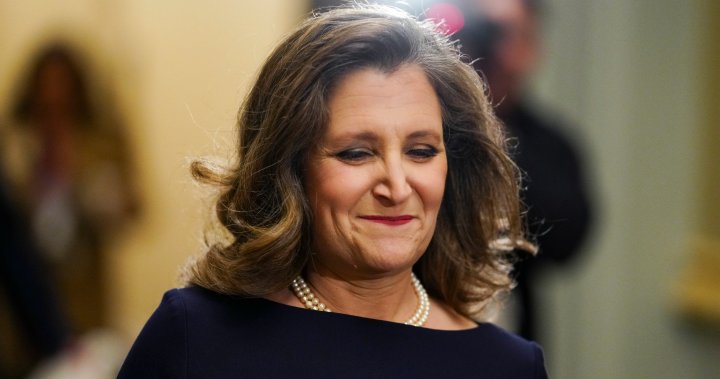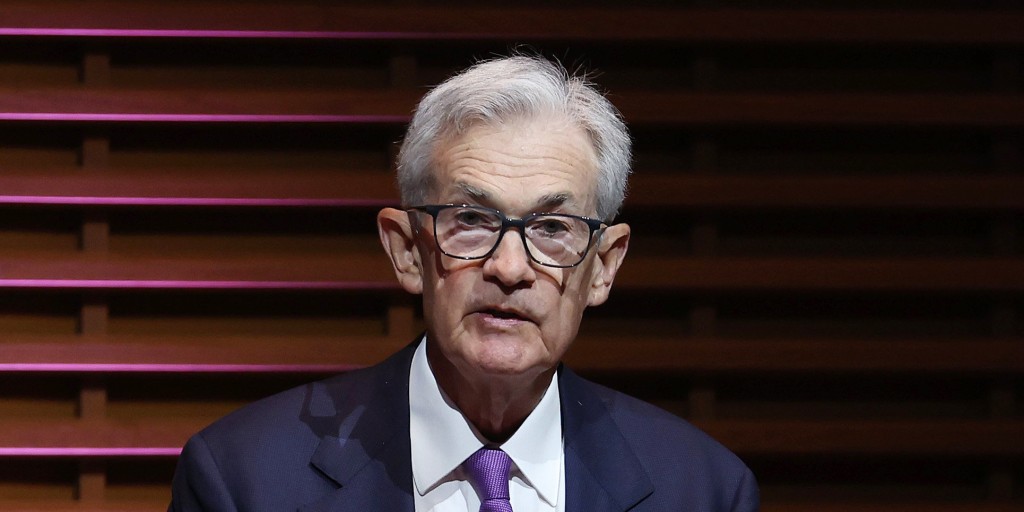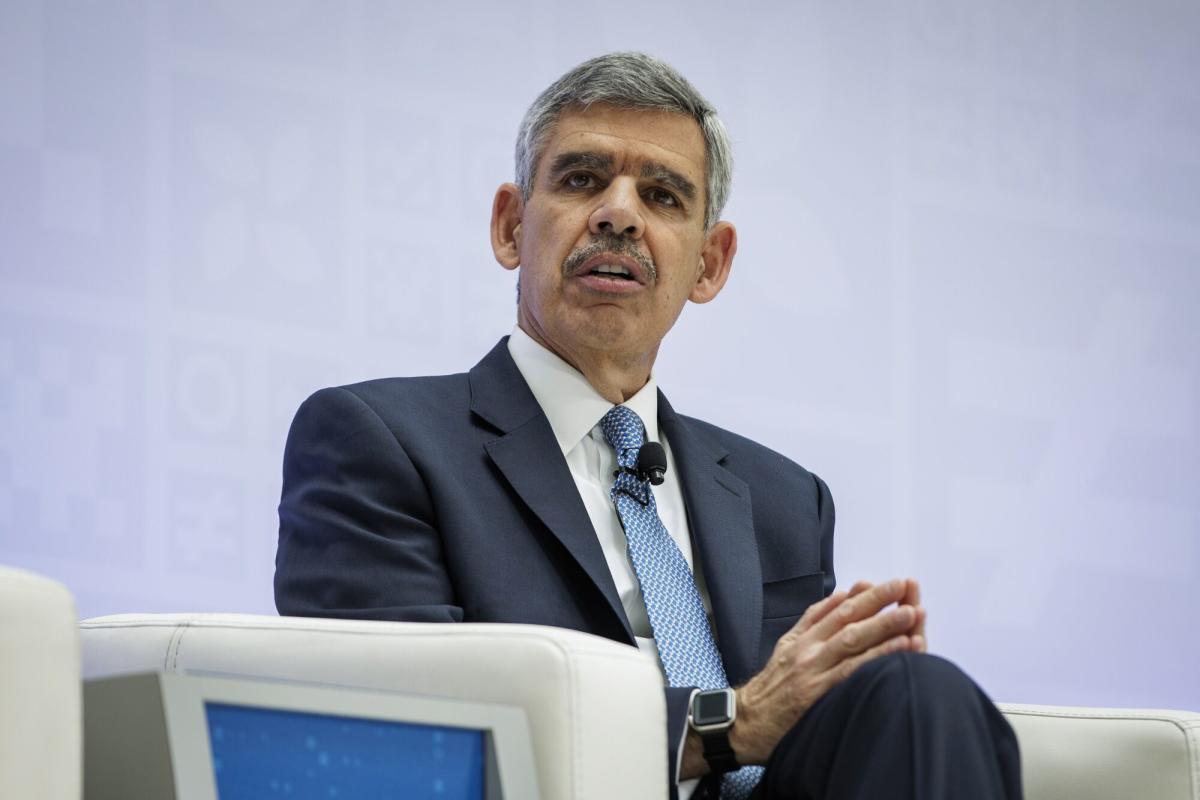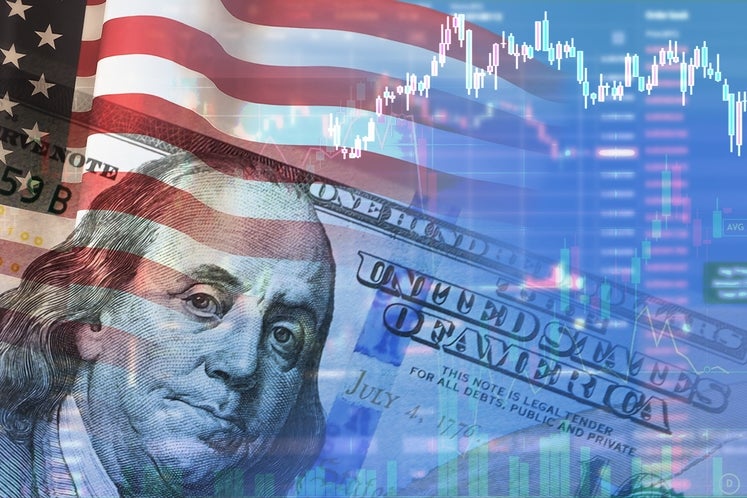Climate breakdown and extreme weather conditions in the UK and other European countries are causing low crop yields, leading to potential food shortages and price rises. Record rainfall has prevented farmers from planting crops, resulting in poor-quality produce and high mortality rates for livestock. The UK will be more reliant on food imports, but similar weather conditions and droughts in other countries may limit the availability of goods. Economists warn that this could lead to food inflation and higher supermarket prices. Urgent action to reduce emissions and transform the food system is needed to address this threat to food security.

Federal Reserve Chair Jerome Powell stated that the central bank won't be cutting interest rates soon due to recent data indicating a longer-than-expected timeframe to achieve 2% inflation, causing concerns for markets, businesses, and the economy.

More than half of the rooms at budget hotels in the US were vacant in the first quarter of 2024, as travelers affected by inflation reduced their spending, leading to a 6.5% decline in revenues per available room compared to the previous year. Luxury hotels, on the other hand, experienced only a 0.3% drop in revenue.

China is reportedly subsidizing the manufacturing of materials used to produce fentanyl outside the country, contributing to the fentanyl crisis in the US, according to a report by a special House committee focused on countering the Chinese government. The report also suggests that China has hindered investigations into illicit manufacturers and recommends using trade and economic power for greater enforcement from China.

The Liberal government's federal budget for 2024 aims to support young Canadians through measures such as making homeownership more accessible, cracking down on concert ticket fees, and increasing loans and grants for students, but the proposed changes to capital gains taxes and the overall level of spending in the budget have raised concerns about their impact on economic growth and inflation.

Federal Reserve Chair Jerome Powell stated that although the U.S. economy is strong, inflation has not reached the central bank's target, suggesting that interest rate cuts are unlikely in the near future. Powell emphasized that policy will remain unchanged until inflation moves closer to the desired level.

BMO CEO Sees Strong US Growth Despite Higher Rates; Expansion South of Border Key to Bank's Strategy
Bank of Montreal CEO, Darryl White, stated that the U.S. economy is showing signs of stronger growth and highlighted the importance of trade and investment between Canada and the U.S. for economic competitiveness, as the bank relies on the U.S. for a substantial portion of its income.

Federal Reserve Chair Jerome Powell suggests that inflation will take longer than expected to reach the central bank's target, raising doubts about when interest rates may be cut this year.

Generation Z, born between 1997 and 2012, is surpassing baby boomers in the workforce and gaining influence in various sectors, while also experiencing economic success and strong wage growth, leading to a different attitude towards work compared to previous generations.

Around 22% of workers in the U.S. have side hustles, with 53% of them living paycheck-to-paycheck and relying on the extra income to cover basic living costs, while even high-income earners use side gigs to increase their income; additionally, Gen Zers are the generation that takes on side hustles the most often, as many of them have lower-paying jobs and need multiple jobs and gigs to make ends meet.

The International Monetary Fund (IMF) has warned that the US's strong economic performance is due in part to unsustainable fiscal practices, posing risks to both short-term disinflation and long-term fiscal and financial stability for the global economy.

Around 40% of defaulting US companies in 2023 had previously defaulted, primarily due to high levels of debt and challenges in an elevated interest rate and inflationary environment, according to a report by Moody's. Most of these defaults were by companies acquired by private equity firms through leveraged buyouts, with distressed exchanges being the primary method of restructuring debt. However, Moody's expects the default rate to gradually ease in the coming year as the number of distressed debt issuers declines.

The International Monetary Fund (IMF) has raised concerns about the Biden administration's excessive spending, stating that it is not in line with long-term fiscal stability and poses risks to the global economy. Despite the positive growth of the US economy, the growing national debt and fiscal deficit are threatening to worsen inflation and impact the economy in the long run.

Fannie Mae is selling agency mortgage-backed securities with revamped criteria to attract socially minded investors and fill the void left by the Federal Reserve, aiming to incentivize underserved borrowers and make the market more attractive to investors.

The International Monetary Fund warns that the global economy may face challenges ahead, despite the current positive outlook, as growth rates are expected to decline over the next decade and geopolitical risks increase.

Homebuyers should take advantage of the current low mortgage rates and consider locking in a rate now before potential rate increases at the end of the month.

The International Monetary Fund (IMF) predicts that the strong performance of the US economy will drive global growth this year, but it may also exacerbate inflation issues in the country, requiring a cautious approach to monetary easing by the Federal Reserve. The IMF upgraded its forecast for US economic growth to 2.7% this year, outpacing other advanced economies such as Europe, which is expected to grow just 0.8%. However, the IMF also raised concerns about the US fiscal stance and high debt levels, which could risk pushing up global funding costs and pose long-term financial stability risks.

Grocery stores are accused of using "trickflation," a new form of inflation where retailers change the shape and appearance of products to make customers spend more money while offering the same amount of product.

Veteran investor Ed Yardeni predicts a 10% correction in the S&P 500 index in the coming months, citing rising yields and the belief that the Federal Reserve may not cut rates this year.

Germany's economy is expected to grow by 0.2% this year, lower than the previous estimate, due to structural problems and obstacles to investment, according to the International Monetary Fund (IMF), which also revised its outlook for France's growth and warned of increasing geopolitical fragmentation.

The International Monetary Fund warns against market complacency and advises caution as central bankers attempt to achieve a "soft landing" in their battle against inflation, highlighting stretched valuations, geopolitical tensions, and rising debt levels as potential risks. The IMF also highlights concerns about weak banks, cyberattacks, and the need for better oversight of the private credit sector.

Despite high mortgage rates, some prospective homebuyers are waiting for rates to come down before entering the housing market, resulting in a decline in housing starts; however, experts warn that waiting too long may make it more difficult to find a home as demand increases and rates drop.
Experts are warning that America's economy is more unstable than it appears, citing factors such as rising inflation and high interest rates as causes for concern.

U.S. Treasury Secretary Janet Yellen stated that strong U.S. economic growth has been driving the global economy, and that the U.S. is actively working to address risks and ensure sustainable long-term growth.

Israel's GDP in the final quarter of 2023 decreased by 21% compared to the previous quarter due to the impact of the Israel-Hamas war.

Credible Operations, a personal finance marketplace, provides tools and information to help improve your finances, including current mortgage rates and tips on getting the best rate.

Policymakers worldwide are struggling to address the strengthening US dollar and rising interest rates, which could have negative impacts on global economies and financial conditions, warns Mohamed El-Erian.

Some Wall Street economists are suggesting that the US economy is booming because of, rather than despite, the increase in interest rates over the past two years, as higher rates are providing Americans with more income from their bond investments and savings accounts, leading to increased spending and demand.

The disinflation trend has stalled and many forecasters incorrectly predicted where inflation would be this quarter, with underlying inflation still around 3 percent and inflation rising higher than forecasted, largely due to factors such as skyrocketing auto insurance prices and the failure of the growth in housing costs to slow down.

The U.S. is experiencing high inflation rates that have been consistently above 2%, with March marking the 36th month in the danger zone, and there is a lack of coherent policies from politicians to combat it.

The UK's low unemployment rates mask concerning trends such as an increase in working-age people leaving the labor market due to ill-health, caring responsibilities, and early retirement, attributed to factors like government's inadequate mental health support and delays in reducing waiting lists, benefit cuts, rising childcare and residential care costs, and lack of apprenticeship opportunities for young people. The government is warned that tackling rising inactivity is one of the biggest economic challenges the country faces.

Social Security recipients are projected to receive a larger cost-of-living adjustment (COLA) next year due to accelerating inflation, with estimates suggesting a possible increase of about 3% based on recent data, though it would still be lower than previous years' adjustments.

The US economy could face turbulence in 2025 if the Federal Reserve does not act on interest rates soon, according to a strategist from State Street, who warns that traditional monetary policy mechanisms have "broken" and changes made by the Fed would take longer to impact the real economy, potentially delaying significant shocks.

The danger of a global recession has been avoided, but growth will be weak, according to German government sources, who suggest that structural reforms are necessary and global growth prospects are unsatisfactorily low in the medium term.

Federal Reserve Chair Jerome Powell and Vice Chair Philip Jefferson are facing challenges in reconciling a strong economy with their belief that monetary policy is restraining growth and inflation will decrease. Recent data such as job growth, retail spending, and inflation has cast doubt on their previous outlook and the likelihood of interest rate cuts.
State Street Global Advisors maintains its call for the Federal Reserve to cut interest rates in June, citing the need to avoid influencing the US presidential election and the supportive inflation backdrop.

Federal Reserve Vice Chair Philip Jefferson stated that the central bank is prepared to maintain its tight monetary policy if inflation does not slow as expected, suggesting that interest rate cuts may not be on the horizon.

Auto insurance is the biggest driver of inflation, with a year-over-year surge of 22.2 percent in March, caused by factors such as interest rate hikes, more expensive vehicles, and reckless driving habits.

The Dali cargo ship that crashed into the Francis Scott Key Bridge in Baltimore had alarms indicating an inconsistent power supply before leaving port, and a criminal investigation is now underway.

France and Germany have the worst-performing economies in Europe, while the UK is doing moderately well, and Spain and Italy are seeing positive signs of recovery.

Asian stocks fall and the dollar rises to five-month highs due to strong U.S. retail sales, reducing expectations of interest rate cuts; geopolitical tensions contribute to increased prices of gold and oil.

China's economy grew faster than expected in the first quarter, providing some relief to officials who are aiming to meet their GDP growth target, although there are concerns about weakening momentum and challenges in the property sector.

The number of long-term sick workers in the UK has reached a record high, with over 2.8 million people claiming they are too ill to work, posing challenges for the labour market and the Bank of England's plans to cut interest rates, while pay growth remains high.

Iran's economy is expected to face a challenging year ahead due to government inefficiency, US sanctions, a lack of a plan to address economic crisis, rising prices and housing costs, high unemployment and poverty rates, and general economic instability.

Retail sales in March exceeded expectations, increasing by 0.7 percent, indicating that Americans continued to spend despite rising inflation.

American workers are demanding record-high wages to change jobs, according to a report from the New York Federal Reserve, while employers are offering lower starting wages; job searches and offers have also increased, particularly among men, respondents over age 45, and workers without a college degree.

Stocks in Asia fell as US inflation data raised expectations that the Federal Reserve will not cut rates, and China weakened its yuan defense due to pressure from a resurgent dollar and poor sentiment.

Japan's finance minister has warned that action could be taken in the foreign exchange market if necessary, but has refrained from his maximum threat, causing the yen to weaken after reaching a 34-year low.

Just 8% of adults aged under 30 in Ireland report positive mental wellbeing, with concerns about housing and financial challenges hindering their ability to start a family or secure their own home, according to a survey by Ipsos.
:quality(70):focal(4154x1792:4164x1802)/cloudfront-eu-central-1.images.arcpublishing.com/irishtimes/FN7ZHGUUYVBTHHCJG5NXHSVKPU.jpg)
India's struggle to provide reliable energy to its growing population is evident in the continued operation of an outdated, polluting coal plant in Tuticorin, despite plans to shut it down, as the country grapples with rising electricity consumption and a teetering grid, prompting the government to extend the lifespan of coal assets and push for more coal-fired electricity, putting India at odds with global efforts to curb greenhouse gas emissions and transition away from fossil fuels.
